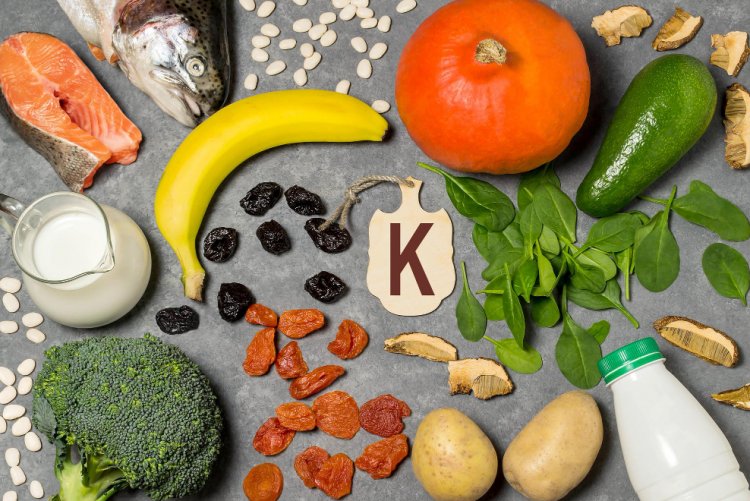Vitamin K: A Comprehensive Overview
Vitamin K is a fat-soluble vitamin that plays a crucial role in various bodily functions, particularly blood clotting and bone metabolism. This article will delve into the definition, dietary sources, consequences of deficiency, health benefits, and recommended intake of vitamin K.

What is Vitamin K?
Vitamin K encompasses a group of structurally similar, fat-soluble compounds essential for blood clotting (coagulation) and bone metabolism. There are two primary forms of vitamin K: K1 (phylloquinone), found in green leafy vegetables, and K2 (menaquinones), synthesized by bacteria in the gut and also present in certain animal-based and fermented foods.
Sources of Vitamin K
-
Leafy Green Vegetables: Spinach, kale, collard greens, Swiss chard, and broccoli are excellent sources of vitamin K1.
-
Vegetable Oils: Soybean, canola, and olive oil are good sources of vitamin K1.
-
Animal-Based Foods: Liver, egg yolks, and certain dairy products contain small amounts of vitamin K2.
-
Fermented Foods: Fermented soybean products like natto and certain cheeses contain vitamin K2.
-
Supplements: Vitamin K supplements are available in the form of K1, K2, or as a combination.
Consequences of Deficiency
Vitamin K deficiency is relatively rare but can lead to serious health issues, primarily due to impaired blood clotting. Symptoms of deficiency may include:
-
Easy Bruising and Bleeding: Prolonged clotting time can result in excessive bleeding from minor injuries or mucous membranes.
-
Osteoporosis: Inadequate vitamin K impairs bone mineralization, increasing the risk of fractures and osteoporosis.
-
Hemorrhage: Severe deficiency may lead to internal bleeding, particularly in the gastrointestinal tract or the brain.
Health Benefits
-
Blood Clotting: Vitamin K is essential for the synthesis of clotting factors in the liver, which are necessary for proper blood coagulation and wound healing.
-
Bone Health: Vitamin K contributes to bone mineralization and helps maintain bone density, reducing the risk of fractures and osteoporosis.
-
Cardiovascular Health: Some research suggests that vitamin K may help prevent arterial calcification and reduce the risk of cardiovascular diseases.
-
Brain Function: Emerging evidence indicates a potential role of vitamin K in brain health and cognitive function.
Recommended Intake
The recommended dietary allowance (RDA) for vitamin K varies by age and gender:
-
Adults: Men should aim for 120 micrograms (mcg) per day, while women should target 90 mcg per day.
-
Pregnant and Lactating Women: The RDA increases slightly to accommodate the needs of pregnancy and lactation.
-
Infants and Children: Adequate intake levels are lower for infants and children but increase with age.
In conclusion, vitamin K is a vital nutrient involved in blood clotting, bone health, and potentially other physiological functions. While deficiency is rare, ensuring an adequate intake through a balanced diet rich in leafy greens, vegetable oils, and fermented foods is essential for maintaining optimal health. Additionally, consulting a healthcare provider before starting any supplementation regimen is advisable, especially for individuals with underlying health conditions or those taking medications that may interact with vitamin K.
#VitaminK #HealthBenefits #BoneHealth #BloodClotting #Nutrition #DietarySources #Deficiency #Supplements #Wellness #HealthyLiving #HealthyEating #HeartHealth #BrainFunction #Osteoporosis #HealthTips #Vitamins #Nutrients #HealthyLifestyle #HolisticHealth
Disclaimer:
The information provided in this article is for educational purposes only and should not be considered medical advice. If you have any health concerns or are experiencing symptoms, it is important to consult with a healthcare professional, such as a doctor or clinic, for proper diagnosis and treatment. Always seek the advice of your doctor or other qualified health provider with any questions you may have regarding a medical condition. Do not disregard professional medical advice or delay in seeking it because of something you have read in this article.
What's Your Reaction?





















